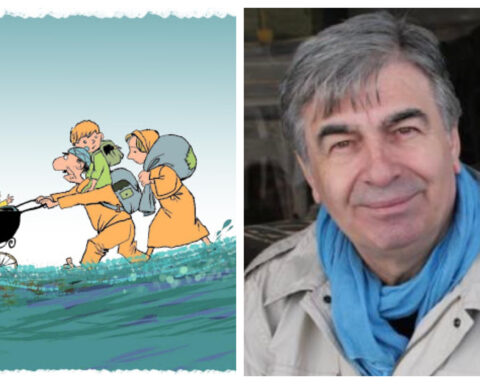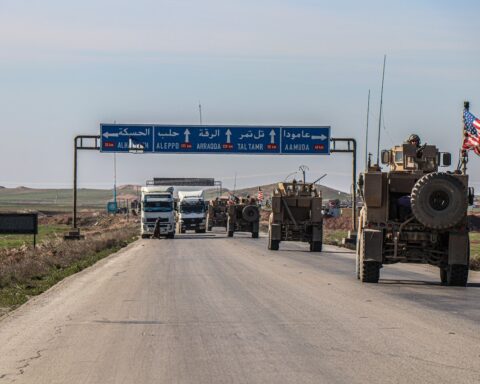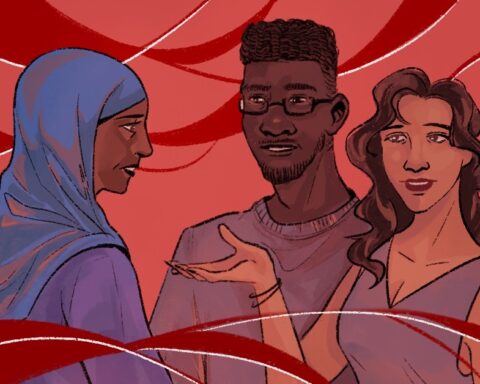The third anniversary of President Hosni Mubarak’s ouster came and went last week with little fanfare, no ceremony and lots of shrugs of the shoulder.
Many Egyptians were instead out in the parks, cafes and Nile bank restaurants enjoying what to most Canadians is late May weather.
To the uninitiated, the capital Cairo could have been mistaken for hip central, a hangout zone for Egyptian youth brandishing iPads and iPhones, parked neatly next to the hookah, or shisha.
“It’s been a long three years, people are finally starting to breathe,” says Ali, a cashier at a supermarket in Cairo’s Haddayek Maadi district.
‘A long three years’ may be understating the tumultuous events that have shaped Egypt’s contemporary history since millions of Egyptians crowded the now iconic Tahrir Square and demanded “bread, social justice, and dignity.”
At the time, Ottawa was slow — if not reluctant — to support the populist movement that somewhat achieved ‘regime change’.
When Mubarak handed over power to the military, Prime Minister Stephen Harper acknowledged the new political reality, said that “the future of Egypt is for Egyptians to decide,” and called for democracy and elections.
Egypt has witnessed three referendums, two uprisings, a parliamentary election and a presidential election, but the stability that so many had hoped for three years ago remains elusive.
Political and social violence in the past three years — the latest was a February 16 rocket attack on a bus carrying mostly S Korean visitors, killing the driver and three tourists — has almost become a de facto way of life.
A watershed
Nevertheless, many Canadians of Egyptian extract believe the recent political momentum triggered by the January 14, 2014 constitutional referendum could put the country on the path toward stability
Waleed Nassar, a Torontonian who came to Canada two years ago, happened to be in Cairo last summer when President Mohamad Morsi, a member of the Muslim Brotherhood, was forcibly removed from power by the military.
“From what I’ve seen, most Egyptians I spoke to were happy [that] Morsi was removed,” says Mr. Nassar.
But the military’s July 3rd intervention to remove a “democratically elected” president — as North American media repeated over and over — angered and confused many outside Egypt, and the foreign press began calling the ouster a military coup that divided the country.
Ottawa called it a coup, but stopped short of applying any pressure on the new military leaders, and interim Egyptian government. Foreign Affairs Minister John Baird conveyed Canada’s “deep concern” reiterating earlier statements calling for “meaningful political dialogue.”
No one was listening.
On August 14, security forces forcibly dispersed pro-Morsi and Muslim Brotherhood protest camps in a section of Cairo near the presidential palace – the ensuing clashes left at least 600 people dead and more than 4,000 injured.
The violence shook Egyptians in and outside of the country, including Mr. Nassar who hoped for some kind of inclusive process that could defuse tensions between the Muslim Brotherhood and the military.
“Morsi and the Muslim Brotherhood have their core supporters who feel excluded and persecuted. My estimate is that they are around 25 per cent of the politically active Egyptians, so I wouldn’t say that Egypt was ‘divided’. But 25 per cent is still significant and should not be criminalized or labelled as terrorists,” Mr. Nassar said.
Ahmed Kadry, a student studying in Toronto, believes that the Muslim Brotherhood are little more than a minority who have tried to persuade Egyptians that theirs is a country divided.
“Now that the referendum has officially passed, this will unite Egyptians even more as it’s an important step towards stability,” he says.
On January 14, 98.1 per cent of the more than 20 million ballots approved by referendum the constitutional amendments proposed by a committee chosen by the post-July 3 interim government.
Some Egyptians said the referendum was also an approving nod for the military’s intervention in July, while others say it is a stepping stone for Defense Minister Abdel-Fattah El-Sissi to run for president.
Others, like Mr. Kadry, believe the new amendments were necessary to correct or roll back the constitution that was approved by the Morsi government in 2012: It was a writ that many in Egypt feared would strengthen the Muslim Brotherhood’s influence on all sectors of Egyptian society.
“The [Constituent Assembly] committee that wrote those amendments during President Morsi’s year [June 2012-July 2013] of rule did not represent the Egyptian population in general, and especially the youth of Egypt that took the streets in January and February 2011,” Mr. Kadry recalls.
He says the committee was given an edict by Mr. Morsi that it was above reproach.
Religion in governance
“Morsi’s constitution opened the door for two things that I did not want. The autonomy of the army without supervision by the people’s assembly or president, and the constitution also included vague references to the role of religion in governance,” Mr. Kadry says.
If the new constitution is meant to stabilize Egypt, it is yet to bear fruit.
While the number of street clashes that were once common in previous years have significantly dwindled, there has been in uptick in attacks on the state’s institutions — the police, army installations in the Sinai Peninsula, as well as targeted assassinations of senior security officials.
“I don’t think the referendum will help unite Egypt unless the security-first mindset of the current rulers of Egypt is abandoned,” says Mr. Nassar.
He believes that social and political dialogue must includes representatives of all sectors of society, including the Muslim Brotherhood.
In the meantime, Egyptians continue to worry about the economy. The tourism industry, which was a major source of foreign exchange inflows, has slowed to a crawl.
The February 16 attack on the tourist bus is likely to be another blow to the struggling sector.
Firas is a Canadian journalist of Arab descent who has covered the Middle East since 1992. In April 2010, he left Al Jazeera’s English-language website, where he worked as a senior editor since 2004. In September 2010, he joined the American University of Cairo as an associate professor of practice at the Journalism and Mass Communication department. He is also a member of New Canadian Media’s Editorial Board.
Journalism & Communication Dept Chair; Managing Co-Editor @ Cairo Review of Global Affairs, American University in Cairo





